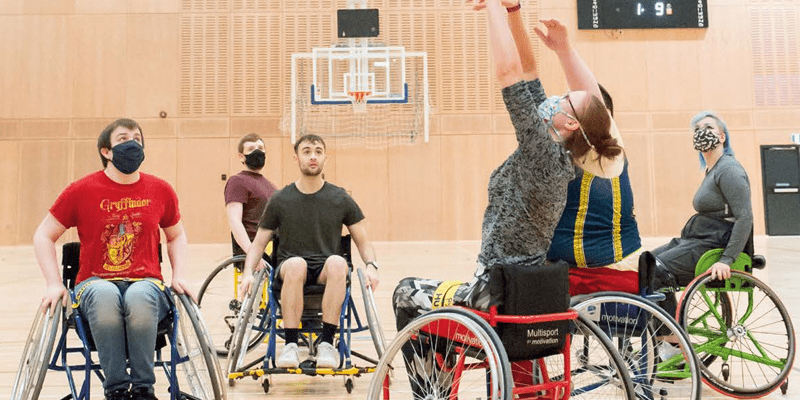OfS calls on institutions to review support for disabled students
The OfS said they should reflect on a number of key areas, including legal duties around reasonable adjustments and how they communicate and collaborate with disabled students

Register to get 1 free article
Reveal the article below by registering for our email newsletter.
Want unlimited access? View Plans
Already have an account? Sign in
The Office for Students (OfS) has called on universities and colleges to review how they support disabled students, following new evidence showing that their experiences of higher education remain poorer than those of their non-disabled peers.
In a new insight brief, the higher education regulator included views shared by the National Student Survey (NSS) respondents, fresh polling, and sector data on completion, progression and attainment rates.
The brief also summarises feedback from workshops held with university and college representatives on implementing reasonable adjustments for disabled students.
The OfS said institutions should reflect on a number of key areas, including legal duties around reasonable adjustments, how they communicate and collaborate with disabled students, and whether their teaching and assessments are accessible while maintaining academic standards.
Other points for consideration included the use of staff training, data and evaluation to design support that is personalised and responsive to individual needs, and the potential impact of risks to equality of opportunity as identified in the OfS Equality of Opportunity Risk Register.
The brief draws on the work of the OfS’s Disability in Higher Education Advisory Panel, which was established in April 2024 to provide expert advice on improving disabled students’ experiences and to recommend ways in which institutions can enhance their support.
Suzanne Carrie, head of Student Equality and Welfare at the OfS and deputy chair of the Disability in Higher Education Advisory Panel, said: “Every student should expect a high quality higher education experience that has a positive impact on their lives and career. For disabled students, that expectation is not always met.
“Today’s insight brief underlines the need for universities and colleges to renew their efforts to address the inequalities between disabled and non-disabled students that continue to persist.”
She added: “Many institutions are already driving forward important work to bridge the gap, and we welcome the positive steps they have made towards ensuring students have an equitable experience.
“All universities and colleges should reflect on the insights and points for consideration listed in this brief as they review their support for disabled students and work to ensure they gain the same fulfilment and value from higher education as their non-disabled peers.”






